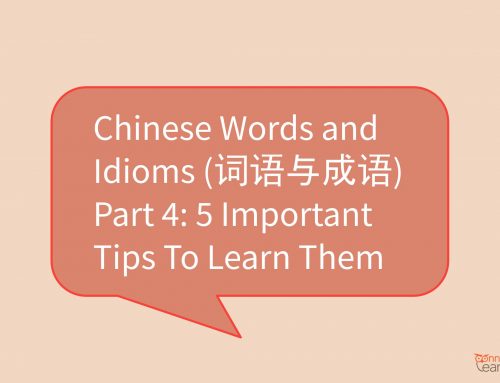The primary and secondary school examination schedule is just right around the corner. As expected, this is the period of anxiety in the minds of students where they start planning for the studying of the final tests for the year.
Sometimes having studied for the Chinese papers just doesn’t seem to be enough. Other than being careless, which is one of the most commonly seen mistakes, let’s take a look at the rest.
SIGN UP NOW: FREE TRIAL LESSON
Top 5 reasons for losing marks in the Chinese papers
1. Racing against time due to poor time management
In the pressure-cooker setting of timed examinations, students usually rush to read through and attempt to understand the question. Try not to do that as it might misinterpret and therefore cause a loss of marks (离题). This is common, especially when the answer selections include Chinese words that are similar.
Poor comprehension skills coupled with limited time also leads to guessing and/or skipping of keywords. This will affect reading comprehension, hence resulting in the student given inaccurate answers instead.
2. Poor Handwriting
With increasing panic as time slips by, students tend to scribble their answers. Writing too untidily, too small, or too fast will all lead to illegible handwriting. Regardless of how well answered the question is, bad handwriting can be a deal-breaker. As long as the papers are marked by teachers (who are subjected to long, sometimes sleepless hours spent on marking papers), answers which are difficult or ‘sloppy’ to read will definitely lead to loss of marks.
3. Overuse of idioms/phrases
While teachers have always encouraged the use of idioms and phrases to enhance the quality of the essay, overusing might affect the clarity of the content. Even worse, it may cause a loss of marks if the student’s familiarity with the idiom and phrase or command of language is not strong enough. One obvious reason is that since idioms do not represent the literal meaning of the words put together, they can easily be misinterpreted or misused due to lack of knowledge or overall inexperience with the usage of the idiom and phrase.
Too many idioms in an essay can make the writing appear extremely cliche and that is something students should try to avoid. The bottom line is to use idioms and phrases sparingly, and use those that one is familiar with. Sometimes, the use of simple language can better improve the clarity and structure of the essay.
4. Over-reliance on your dictionary
Primary students are permitted to consult a dictionary during an examination. It’s good for students when they can’t remember how to write certain words. However, due to time constraints, frequent use of the dictionary with all the flipping and searching will cause considerable time to be lost, leaving lesser time to complete the essay.
Other than that, using the dictionary too often will affect a student’s train of thoughts and the flow of the essay. Students should try to use the dictionary only after the completion of the essay by leaving spaces for the words that need checking, and writing the “Hanyu pinyin” of the word for easy searching later.
5. Being too Complacent
Such a scenario may happen where instead of rushing through the papers, one has worked very efficiently or find the papers to be easy, and has loads of time to spare. Usually, students would want to leave the exam room early, if they are allowed to, without checking their answers.
So, even if students have finished their paper early, students should use that extra time, in the end, to read all the answers, and making sure that they have all been answered to the best of your abilities.
Students should read through what has been written, and sometimes additional points will occur that would be worth adding on, or one may recall certain Chinese words that they have forgotten earlier on.
In conclusion, it is always a good habit to check your papers and submit at the very end.








